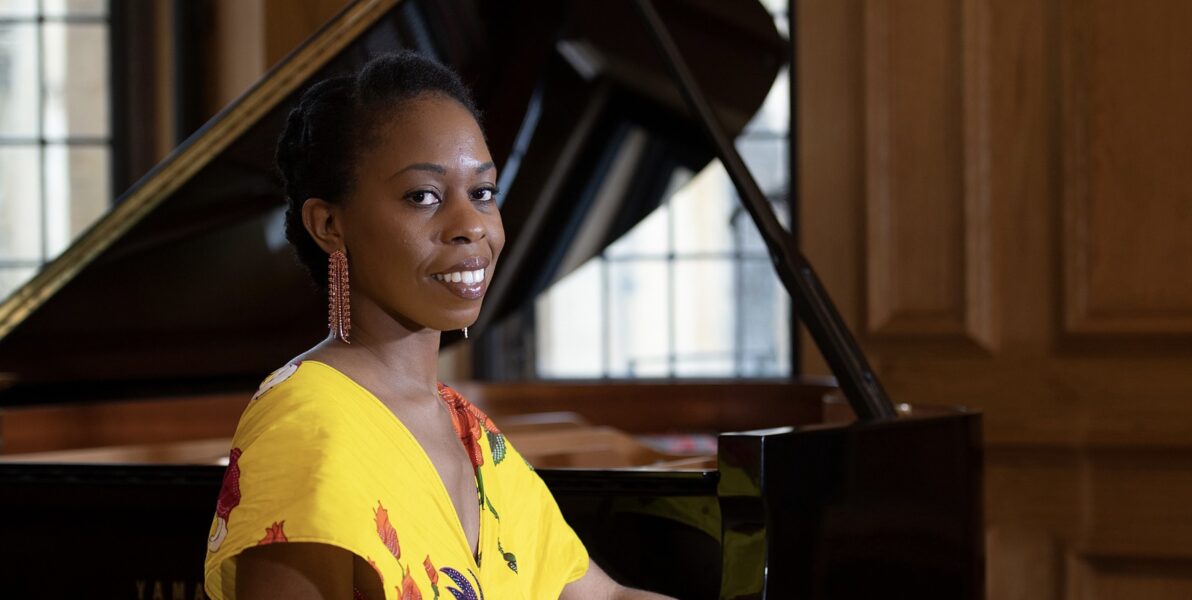Menu

Samantha Ege belongs to a new generation of practitioners who are redefining classical music and illuminating the diversity of its past, present, and future.
This concert celebrates the Black Renaissance in which composers of African descent shaped a dynamic musical era through the first half of the twentieth century. Women played a significant role in defining the Black Renaissance sound and here Ege brings their legacies to the fore.
We are also delighted that Dr Ege, who is Lord Crewe Junior Research Fellow in Music at Lincoln College, University of Oxford, will host an event for local school children in the afternoon prior to her evening concert.
To find out more about the artist, see https://www.samanthaege.com
With kind support from Skipton Rotary
Photo credit: Jason Dodd
This concert is part of Skipton Music’s 75th anniversary season ‘Hidden Treasures: Celebrating Women Composers Across the Ages.’
Chicago comes to Skipton
Skipton Music's 75th anniversary season, celebrating women composers, came to a triumphant conclusion with a recital by the pianist Samantha Ege centred on works by leading composers of the Chicago 'Black renaissance' movement.
American composers in the 1920s and 30s – black and white – were striving to create a distinctively American musical idiom, in contrast with the European tradition in which they had been trained. Some, like Aaron Copland, incorporated American folk and popular music directly into their music; others, like Samuel Barber, did not adopt such 'regional' influences but aimed at a more universal but still highly personal style.
For composers of the Black renaissance movement, such as Nora Holt, Florence Price and Margaret Bonds, there was no question: the rhythms of spirituals and gospel was in their blood and they were proud to celebrate it in their music. The two 'Fantasies Nègres' of Florence Price and the 'Spiritual Suite' of Margaret Bonds all quote extensively from this vivid tradition. Your reviewer was particularly taken with the first piece of Margaret Bonds' suite in which the music gradually becomes more lively as the 'dry bones' of Ezekiel's vision knit together until it suddenly morphs into an exhilarating boogie-woogie.
Samantha Ege proved a compelling advocate for this repertoire which is only slowly becoming known to European audiences. She handled the virtuoso piano writing with ease and an infectious rhythmic drive, but also with delicacy in the quieter and more reflective moments. Earlier in the day she gave a shortened version of the programme to a rapt audience from seven local primary schools, thanks to generous financial support from Skipton Rotary. Let's hope that the young musicians in her audience were inspired to follow her advice to practise and practice – maybe a future star is born!
Charles Dobson